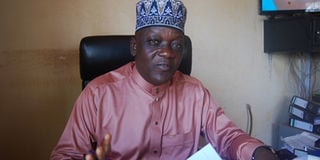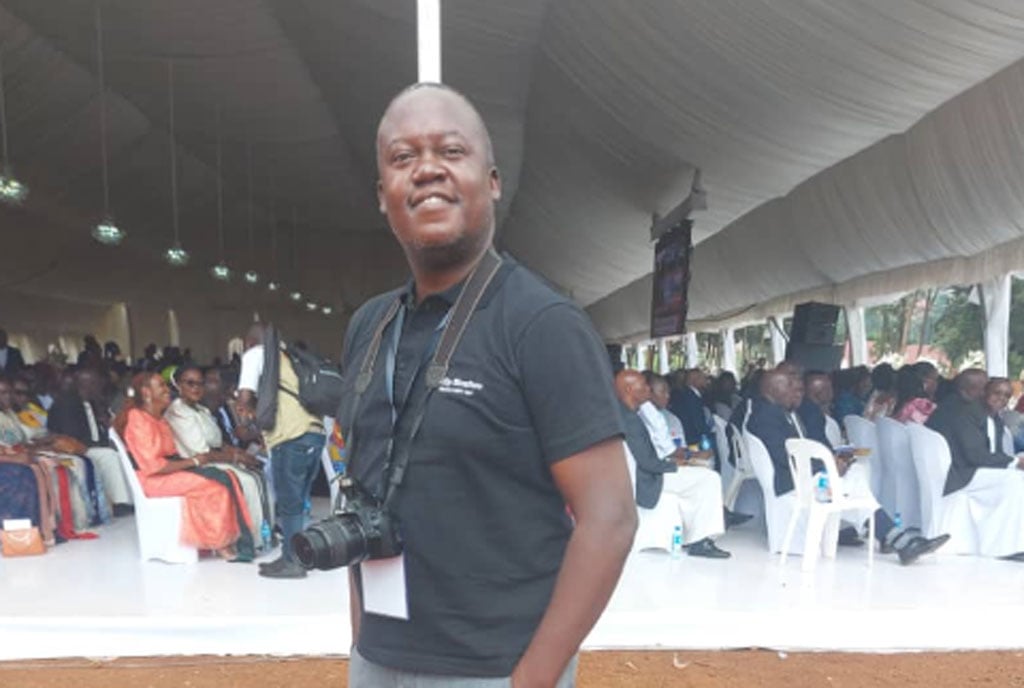You can’t run new curriculum without money – school official

The chairperson of directors of all private schools in Busoga, Hajji Swaibu Kitezala, discusses a wide range of issues affecting the education sector in the sub-region at his office at Jinja Progressive SS on Friday. PHOTO | PHILIP WAFULA
What you need to know:
- The government in February 2020 rolled out the new lower secondary education curriculum with the aim of meeting the learners’ needs, especially in regard to skills training and enhancement.
The chairperson of directors of all private schools in Busoga sub-region, Hajji Swaibu Kitezala, has hailed every aspect of the new Lower Secondary Curriculum as “practical and very interesting”, but said institutions having financial problems will face challenges implementing it because it is a “high cost”.
The government in February 2020 rolled out the new lower secondary education curriculum with the aim of meeting the learners’ needs, especially in regard to skills training and enhancement.
In the new curriculum, schools will teach 12 subjects at Senior One and Two, out of which 11 will be compulsory while one will be from an elective menu (optional).
Students at levels Three and Four will exit with a minimum of eight or a maximum of nine subjects with seven of them compulsory.
“Every institution that is having a problem of money or cash is going to face it rough because you cannot run this curriculum without money,” Mr Kitezala said in an interview on Friday.
Hajji Kitezala, who is the director of Jinja Progressive SS, said the parents are overstrained, and cannot shoulder everything; therefore, once the government introduced the new curriculum, they strategized as an institution and adopted ways of handling it.
Such strategies, he said, include; engaging people who were trained to train their teachers and have since remained closely working with the designers.
“We have been able to spare some money to train teachers, carry out practical, organise space and to follow the curriculum the way it was designed because some people are refusing to implement and do what the curriculum designers are telling them to do,” he added.
The school’s director of studies, Mr Ibrahim Ntembe Wakinyankali, said looking ahead, the school is managing the competency-based curriculum, and have structured a series of workshops to facilitate the transition from a knowledge-based to a competency-based curriculum.
Already some of the students are producing chalk, liquid soap which they are being paid for, adding value to agricultural products, and applying manure from the farm to the banana plantation project.
Iryan Collin Sanya, a student in Senior Three, said they started making chalk last year using calcium carbonate, plaster of Paris and soft water and have since made over 2,000 pieces which they supply to their sister school Lakeside Secondary School, Masese.
Colline Tezikoma, also in Senior Three, says using the competence-based curriculum, they have managed to make multipurpose liquid soap using soda ash, industrial salt, water and animal fats, which has saved the school from buying it from shops.
Proposed ban on proms
As implementers, Hajji Kitezala says they have challenges with proms which he said are supposed to be farewell parties.
According to him, if a school is organising a party for students, it should reflect the student’s life, but the parties allover, not only in Kampala, but even upcountry, have been turned into showbiz and showing off heavy vehicles, choppers.
“I am totally against pomp in these parties; as managers of schools, we are having very many challenges and are engaging our candidates. Can we have people putting on school uniforms and they have prom?
“The intention of the party is to have as many as possible to attend the party sponsored by the school but is now for a few who can afford to bring a vehicle, hire suits. The parties shouldn’t be banned but scaled down,” he added.
New ‘A’ level curriculum
Hajji Kitezala says learners who transits to Senior Five next year will find it difficult to study under the old curriculum after spending four years attaining hands-on skills.
“If you are a product of a competence-based curriculum and are coming to ‘A’ level with a knowledge-based curriculum, the two do not tally; the depth of knowledge and current requirements for ‘A’ level are too heavy for a competence-based product of Senior Four,” he added.





